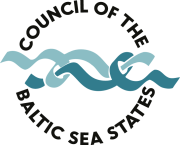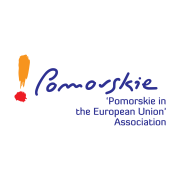
What makes people stay in their region, feel at home & co-create their future? This session explores how territorial cooperation in the Baltic Sea region driven by a macro-regional strategy (EUSBSR) & an EU funding programme (IBSR) creates democratic, resilient, sustainable & economically viable places. Voices from policy, youth & local communities reflect on how shared governance, co-creation & citizen engagement empower people to shape their region. We showcase regional experiences in turning territorial cooperation into actions proven by Interreg projects Creative Circular Cities & We Make Transition! We welcome inspiration from other regions on building thriving territories together <3
- Cohesion | EU/ European | Governance and Public administration | INTERREG | Local and regional | Territorial | Youth and citizens engagement
- Code: 14WS252027
- Square Brussels, 311-312
Speakers
Moderator
Practical information
- When
-
Tue 14/10/2025, 15:30 - 16:30 CET
- Where
- Square Brussels, 311-312
- Type of partnership
- Partnership
- Format
- Workshop
- Theme
-
The Right to Stay: unlocking the potential of every territory
- Language
- English
Partners

Interreg Baltic Sea Region

EU Strategy for the Baltic Sea Region / Baltic Sea Strategy Point

The Council of the Baltic Sea States Secretariat

Danish Cultural Institute

'Pomorskie in the European Union' Association
Reporting
Session summary
How Territorial Cooperation Builds a Home
Our session “The Power of Territorial Cooperation: The Baltic Sea Region as a Shared and Sustainable Home” brought together perspectives from youth, policy, and the local community.
Territorial cooperation is not just a concept. It is a lived experience when policy, EU funding, and people work together: from macro-regional strategies, Interreg programmes and projects, to youth-led action and local community engagement.
Through insights shared by our speakers and the audience, several key messages emerged.
1. Active citizenship and local democracy are essential. People want to use the rights they’ve been given, not just to vote, but to co-shape decisions and lead local change.
2. Jobs and financial opportunities are critical: staying in a region is often about being able to realise meaningful work and contribute economically.
3. Community, inclusion, and shared interests matter. This includes both formal, structured support for different social groups and informal spaces for neighbours, young people, and citizens to organise around what matters to them.
4. These priorities mirror the purpose of territorial cooperation: to bridge governance levels, connect sectors, and unlock shared value: “It’s not just about the right to stay, but the wish to stay.” Cooperation helps turn that wish into reality.
Interreg projects like Creative Circular Cities and We Make Transition! embody this spirit. They show how cooperation can drive systemic change toward sustainability, participation, and resilience. As the motto of Creative Circular Cities reminds us: “You can’t be circular on your own.” And indeed, you can’t build resilience, inclusion, or competitiveness alone either.
Territorial cooperation frameworks like the EU Strategy for the Baltic Sea Region and Interreg Baltic Sea Region help address many of the region’s shared challenges in a coordinated way. These challenges cannot be solved by one country alone; they require a broader, more connected approach. The Strategy and the Programme offer the frameworks needed to link policy with practice, coordinate across governance levels, and support local actors in realising their visions of a shared, sustainable home in the Baltic Sea Region.
At a time when the next EU funding period is being shaped, this session contributed directly to the ongoing development of territorial cooperation, reaffirming its role as a driver of real, tangible action by citizens, youth, and public authorities across the region.
The session itself was an outcome of cooperation, co-created by Interreg Baltic Sea Region, the EU Strategy for the Baltic Sea Region (EUSBSR), the Danish Cultural Institute, the Pomorskie in the European Union Association, and the Council of the Baltic Sea States Secretariat / Baltic Sea Region Youth Forum. With such a rich mix of expertise, experience, and perspectives, territorial cooperation truly came to life, from shaping policy and deploying Interreg funding to the hands-on work of projects and the voices of youth.
Quotes
-
“The concept of home goes beyond geography; it is also about participation and inclusion of young people, and giving them the certainty that they are listened to.”
“We let citizens decide what goal they want to reach, and design how to reach this goal. This is when we could see their excitement.”
“The EU Strategy for the Baltic Sea Region is designed to support coordinated transnational cooperation around the sea. The Strategy enhances regional cooperation and optimises the deployment of EU resources by adapting them to the unique needs of the Bal
“Behind every strategy and funding programme are people, making their regions more liveable, more resilient, more theirs. Territorial cooperation gives us the chance to build that future together.”
Additional links
https://www.linkedin.com/feed/update/urn:li:activity:7384243323194048512
https://www.instagram.com/p/DP3TVX1jOKr/?utm_source=ig_web_copy_link&igsh=MzRlODBiNWFlZA==






